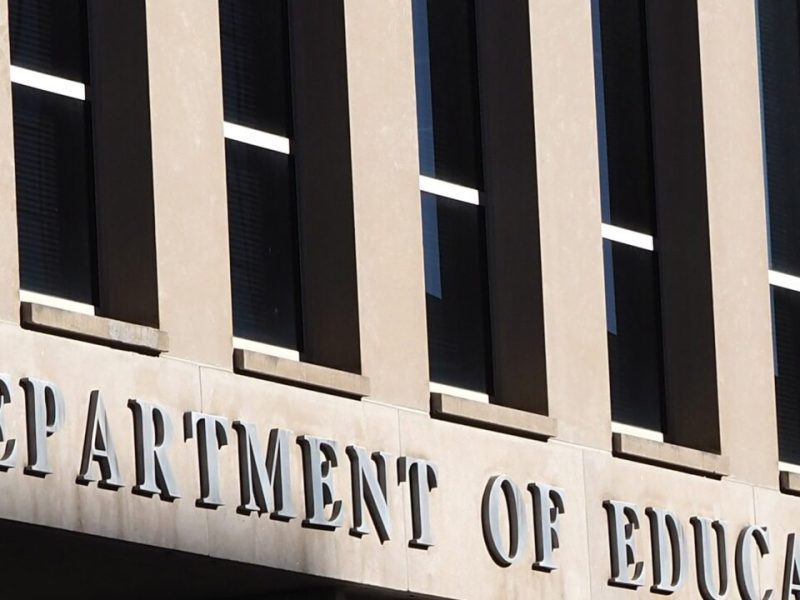
How one Hillsborough principal tried to fix a D school, and hit a wall
Delilah Rabeiro encountered skepticism, sabotage and constant teacher turnover at Robles Elementary. “My heart bled.”
Tampa Bay Times | By Marlene Sokol | February 17, 2022
Delilah Rabeiro was named in 2018 as principal of Robles Elementary, the kind of assignment that then-superintendent Jeff Eakins referred to as “answering the call.”
The school had a long and sometimes troubled history. It was one of the first F schools in Florida under the accountability system introduced in 1995. Doretha Edgecomb, who was principal and went on to serve on the School Board, famously pushed back against the label.
A full generation later, poortest scores remained the norm at a school that was 94 percent low-income and 83 percent Black.
To help Rabeiro turn things around, the district allowed her to bring her own team of school leaders from Lewis Elementary, a far more diverse school that she had led with success.
The state sweetened the pot with a turnaround grant of close to $2 million. Some of the money went toward a trip to Disney World, which led to a complaint from a parent who questioned spending on such an excursion when there were broken desks in the school. Rabeiro said the broken desks had been removed, and the grant was for “student experiences to enrich their learning” and not furniture.
As for the group from Lewis: Some of the Robles staff resented them. They called them “the elite” and accused Rabeiro of “hazing” the teachers who had been there.
Rabeiro’s experience is laid out in a 114-page autobiographical essay she included in her doctoral dissertation at the University of South Florida.
The document hints at racial divisions on the staff, a description backed up by teachers who spoke to the Tampa Bay Times. On her first day, Rabeiro wrote, the outgoing principal told her she needed to learn about Black culture. The principal later told her she’d be “eaten alive” because, although her last name was Spanish, she would be seen as a white woman.
Over time there were tensions with assistant principals, office staff and the school security officer. Rabeiro was overlooked when staff ordered T-shirts to celebrate Black History Month.
At times she felt sabotaged and set up. One day she discovered 200 student registration forms in a bin under a desk that no one had entered into the computer, a mistake that could strip the school of resources for the children.
There were high points, including a Family Reading Night in October. “We killed it,” Rabeiro wrote. They had a pumpkin-decorating contest in the media center. Rabeiro was Snow White in the Oct. 31 character parade. Because the music teacher was going out on maternity leave, they held their winter concert in October. “It was packed,” she recalled.
They cut the ribbon in January for a community food bank, one of the requirements under the state grant.
Rabeiro even managed to take students on a trip to St. Augustine — despite complications about permission slips, and an angry scene when some students lost trip privileges because of their behavior.
But there were constant struggles to attract and retain quality instructors.
One teacher was hired by mistake because she had the exact name as a different teacher who Rabeiro had chosen. “The wrong teacher was awful,” Rabeiro wrote. Under state guidance, she moved that teacher to a younger grade, where students do not take state exams.
Teacher resignations “hit me like a ton of bricks,” she wrote. Colleagues and supervisors said it was better that these teachers left if they did not want to be at Robles. “But emotionally my heart bled,” she wrote. “I was the one that had to face parents and tell them their child didn’t get a quality education because there was no teacher willing to come and teach at my school.”
The school remained a D after Rabeiro’s first year on the job, but she was optimistic that it could improve to a C the following year. She implemented a data room to pinpoint individual students’ learning gaps, and a house system to enhance school pride and camaraderie.
But 2020 was the year of the COVID-19 shutdown, and there were no state exams.
When students returned that August, former area superintendent Anna Brown became Robles’ fourth principal since 2017. A fifth, Wallace Selph from Polk County, is now at the helm. Rabeiro moved to Clark Elementary in affluent New Tampa.
Looking back, she says the frequent leadership changes got in the way of consistency and trust at Robles. She finds some of the memories painful, and her dissertation describes tearful days and sleepless nights.
“It’s my passion, and I put my heart and soul into this work,” she said. “I wanted to be successful for the kids. And it’s hard to work that hard when I did not see the fruits.”





